Each year, AAU provides budget recommendations for federal investments in student aid programs and scientific research conducted at America's universities.
Without sustained federal investment growth, our country will miss out on groundbreaking innovations, new cures for diseases, and inventions that create new industries. Read AAU's budget recommendations for the federal agencies and programs that are vital to the strength of the government-university partnership that fuels our economy, creates jobs, strengthens national security, and improves health
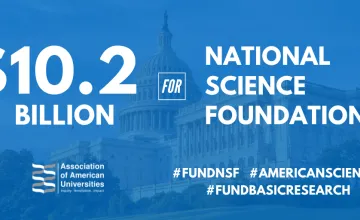
The National Science Foundation (NSF) is the cornerstone of America’s basic research enterprise. NSF supports fundamental, interdisciplinary, and ground-breaking research and education needed to ensure that the U.S. remains at the forefront of science and innovation.
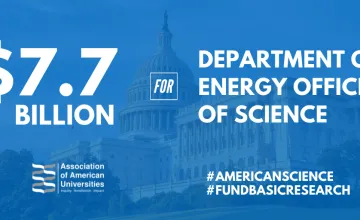
The Department of Energy (DOE) Office of Science is critical to advancing U.S. science and energy frontiers. DOE is the leading source of federal investment in basic physical science research, providing nearly 47 percent of total funding.
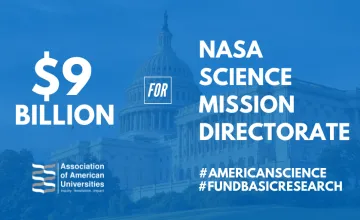
For over 60 years, NASA has captivated the public with accomplishments that have revolutionized our understanding of space sciences, the life sciences, and aeronautics, and have led to new technologies that will enable space travel beyond low-Earth orbit and scientific discoveries.
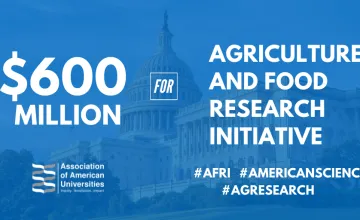
The Agriculture and Food Research Initiative (AFRI) in the United States Department of Agriculture (USDA) is the flagship competitive grant program for agricultural research.
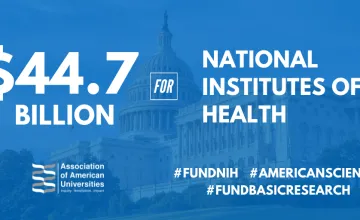
Biomedical research supported by the National Institutes of Health (NIH) and performed at research universities helps ensure U.S. leadership in the life sciences revolution of the 21st Century.
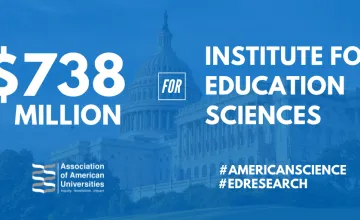
High quality research on the science of teaching and learning is critical to the nations educational institutions ability to deliver students high’ quality education. Just as we invest federal resources in biomedical research to prevent and treat disease, so too must we invest in education research that can improve our understanding of how students learn and what makes an effective teacher. Investments in education research lead to improved teaching practices and student achievement, which are both essential to U.S. economic competitiveness.
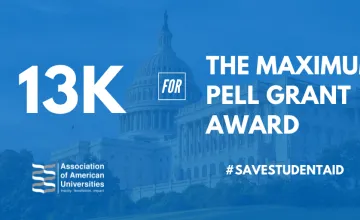
Robust support for federal student aid is key to strengthening the nation’s skilled workforce, innovative capacity, and economic competitiveness. The federal government has long played a pivotal role in ensuring individuals from all backgrounds are able to pursue their postsecondary education goals. That commitment has helped previous generations afford college and attain their educational and career goals. Strengthening this commitment is now even more critical since nearly all new jobs created in our economy require some postsecondary education
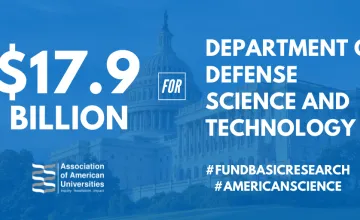
Department of Defense (DOD)-funded basic research has contributed significantly to our nation’s economic and national security. DOD relies on technological innovation as a force multiplier, and cutting-edge advances have helped make our military the best-equipped and most effective in the world. Addressing complex military challenges requires the development of innovative technologies that result from sustained investments in basic research (6.1) performed at American universities.
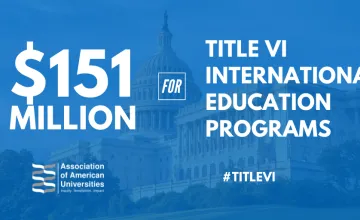
The Department of Education’s Title VI (domestic) and Fulbright-Hays (overseas) programs are the federal government’s most comprehensive programs for developing national capacity in foreign language and area studies expertise. These programs support instruction in less-commonly taught languages—particularly from regions of U.S. strategic interest—and research on cultural issues important to economic and national security. These programs educate individuals whose skills help ensure the successful international engagement of the U.S. education, government, and business sectors.

A robust humanities education is critical to cultivating a broadly-educated workforce ready to compete in the knowledge-based, global 21st Century economy. From the basic building blocks of early education, to the highest levels of academic attainment, humanities fields provide individuals from all disciplines, including science, technology, engineering, & mathematics (STEM), with critical thinking, problem-solving, communi-cation, and analytical skills, competencies, and the expertise needed to fill public, private, and non-profit sector jobs. AAU urges Congress to contin-ue the long-standing practice of funding NEH at the same level as the National Endowment for the Arts.
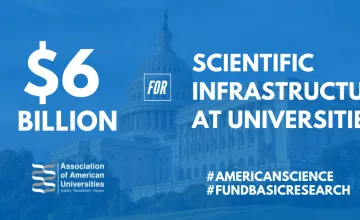
AAU calls for an infusion of at least $6 billion for federal research agency programs that support scientific infrastructure at colleges and universities.
